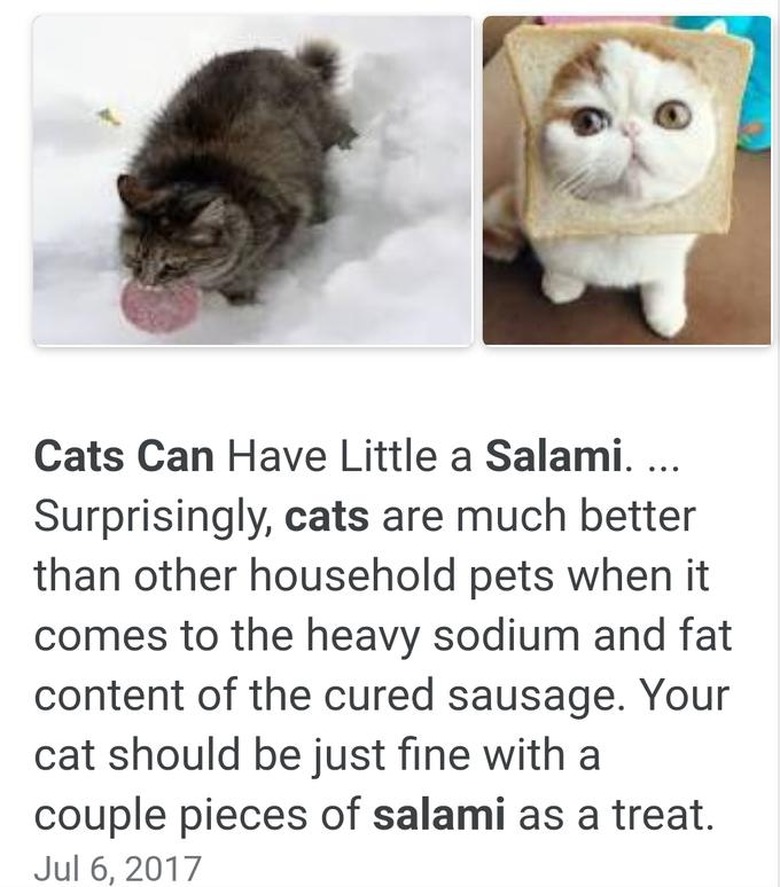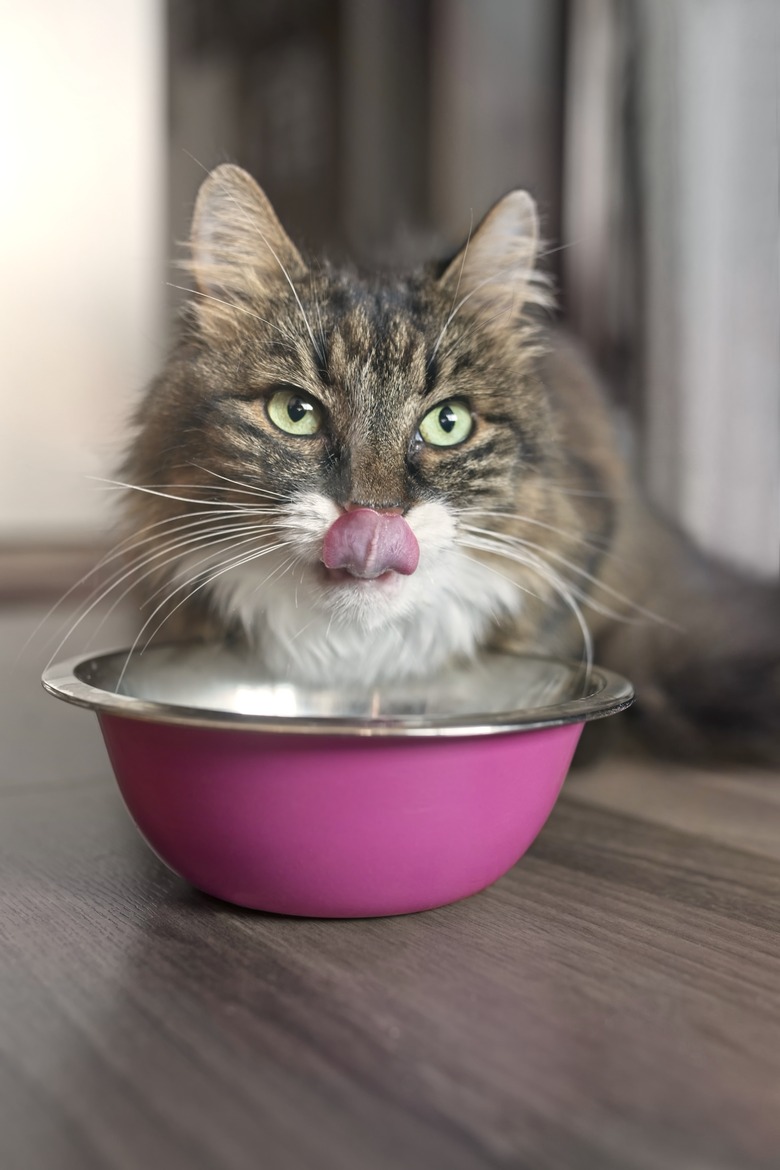Can Cats Eat Salami?
Since cats have long lorded over the internet, it's no surprise the best meme of 2019 was all about our feline friends: a Google search result that confirmed cats can have a little salami, but only as a treat.
The meme is based on a 2017 article aptly titled "Can My Cat Eat Salami?" published on the MeatMenStore, a website for an artisanal salami and sausage company based in San Diego, California. A Facebook post from February 20, 2018 seems to indicate that MeatMenStore is no longer operational, but that hasn't stopped its salami blog from going accidentally viral.
On February 28th, 2019, Redditor Marcushelbing posted a screenshot of the article's Google search result to the cat-themed r/meow_irl subreddit, where it was then reposted to several other subreddits.
"Cats can have little a salami," the post reads. "Your cat should be just fine with a couple pieces of salami as a treat."
From there, the screenshot was remixed into everything from The Sopranos to Bon Appétit Test Kitchen. Google Trends shows the phrase "cats salami" spiked on November 24 through 30 as the meme first circulated on Twitter and Instagram.
Cats are obligate carnivores, meaning they must eat meat to survive. But can they actually have a little salami, or better yet, should they?
According to veterinary experts, the answer is murkier than the meme suggests.
"Salami is fine in small increments," Teresa Meekins, a veterinarian who practices on Long Island, New York, told Cuteness. "Too much salami can cause agitation. Also, they should increase water intake because of the sodium content."
Sure, cats will probably be fine with a small amount of salami, prosciutto, capicola or other charcuterie meats. But as the meme rightfully suggests, this shouldn't become a habit, because food is fuel, and salami is not going to do much to help your kitty function at their optimal health.
"Food needs to be palatable, digestible and nutritional to have value," Frania Shelley-Grielen, an animal behaviorist based in New York City, told Cuteness. "If a cat has an inadequate diet to start with, then we might see all sorts of choices of the 'wrong' things being made because that is all that is available."
Some cured meats such as salami may also contain garlic. According to the the Pet Poison Helpline, garlic and other members of the Allium family—which includes onion, chives, and leeks—are toxic to cats and dogs.
"I never recommend salami, sausage or similar foods because they are high in sodium, even in small amounts," Diana Orozco, a veterinarian based in Temuco, Chile, told Cuteness. "You can give your cat meat treats in small amounts, but nothing that comes from an unknown origin, in order to avoid parasites."
Trichinellosis, for example, is a parasitic disease caused by "eating raw or undercooked meat of animals infected with the larvae of a species of worm called Trichinella," according to the Centers for Disease Control (CDC). This can be spread from animals—including domesticated cats—to humans.
To make sure your fur baby is getting the proper amount of nutrients, be sure to consult with your veterinarian and look out for a statement from the Association of American Feed Control Officials (AAFCO) on your cat's food. This ensures the food's recipe has been tested for quality and nutrition.
No matter how cute (and convincing) your cat may be, be sure you're not overdoing it by giving them lots of human delicacies.
"If we love our kitties we really want to give them what is best for them they might choose themselves and not what we like on a pizza," Shelley-Grielen said.
Always check with your veterinarian before changing your pet's diet, medication, or physical activity routines. This information is not a substitute for a vet's opinion.

